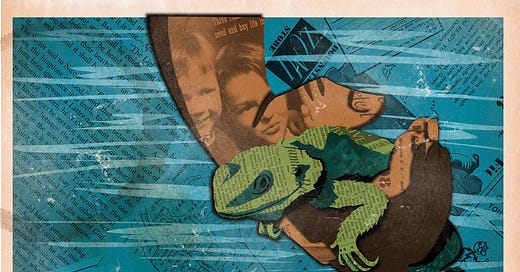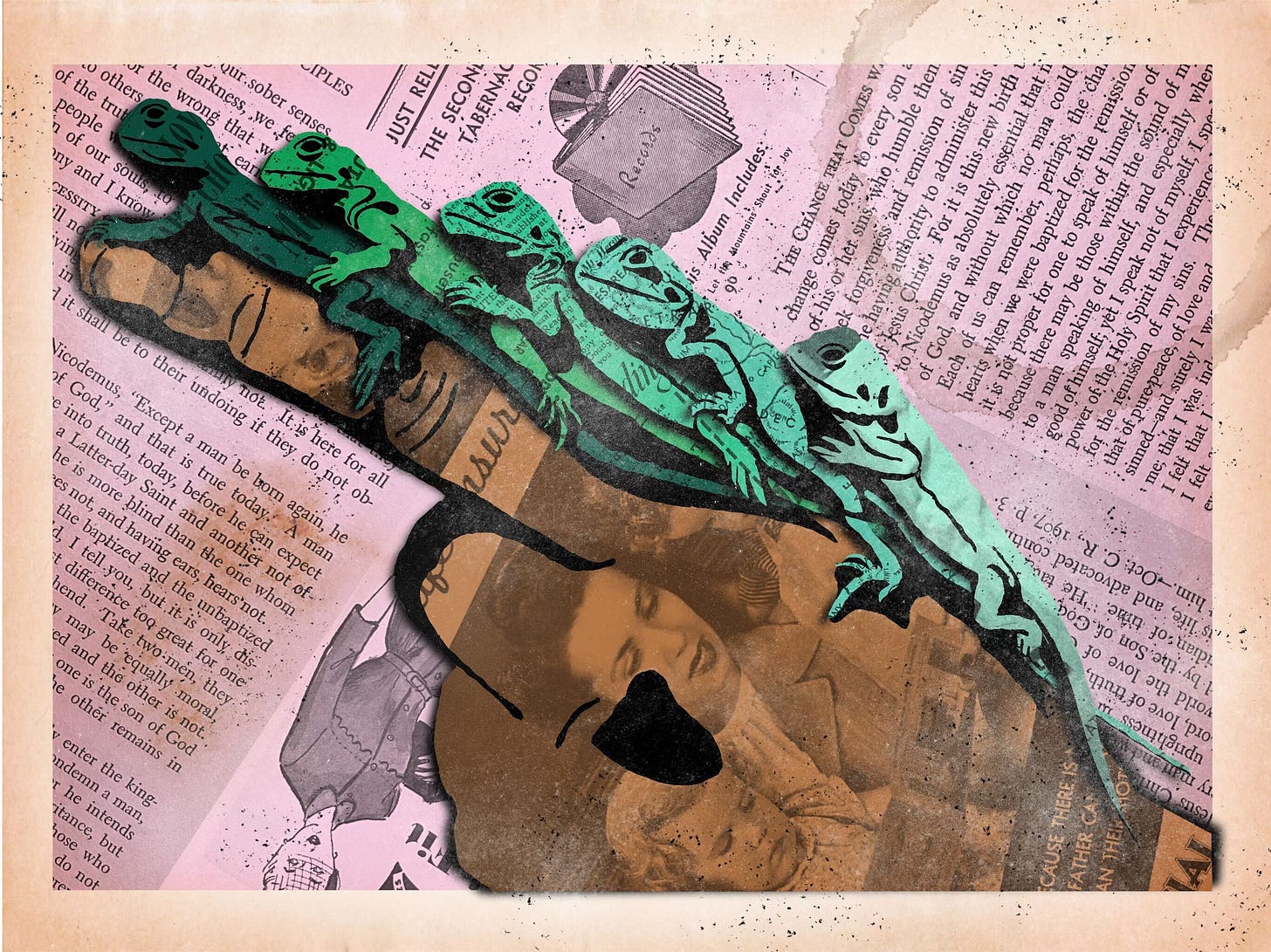Rabbi Danya Ruttenberg is the author of “On Repentance and Repair: Making Amends in an Unapologetic World.” In this conversation with In Good Faith host Steven Kapp Perry, Rabbi Ruttenberg discusses a more holistic view of repentance rooted in Judaism.
Before we dive into the book itself, when did you know you wanted to write on this subject?
This book really began not long after the #MeToo movement broke. A journalist I know emailed to me asking for some guidance about all of these famous men who had been named as perpetrators of sexual misconduct and sexual abuse. How do we know when they've done enough work? How do we know when or how or what to think about their apologies? These were just some of the questions that our culture as a whole started to ask.
I responded to the email with a couple of paragraphs, basing my work on Maimonides—as one does, if one is a rabbi immersed in the work of repentance. My friend, the journalist, wrote the piece and, as these things go, maybe a sentence of mine was integrated into the piece. When it came out, I went back to the email to reread what I had written.
I decided to tweet out what I had written because it seemed relevant to this larger cultural conversation. And so, I wrote this thread and it said, “I want to talk about how repentance and atonement and forgiveness are all really different concepts.” I started this thread explaining the steps of repentance and where forgiveness factors in. The response I got was overwhelming. I realized that these ideas were intuitive to me as a Jew, but they were new to other people. They landed in this black hole in our cultural conversation. People just kept responding to the thread with more questions. I'd respond, and that would open up more questions. That led to an op ed. I kept finding that this issue of repentance—both on the individual, interpersonal level and on the social structural level—kept touching this place of uncertainty and lack of clarity in our larger conversation. That's when I realized that there was more to say and more to do here.
What you're talking about is so integral to being human. I mean, as simple the fact that we step on each other's toes by accident and need to apologize. There's nobody who is not affected by the subject matter of your book.
Listen, we all cause harm, whether we intend to or not. We have also all been harmed. We’re bystanders. We all see people hurt other people, both on the interpersonal level and on the larger cultural level. Figuring out how to talk about accountability, repentance, and repair is really, really critical.
The whole idea that restitution, an apology, forgiveness, etc., are separate amazes me. In your book, you distinguish five steps: naming and owning harm, starting to change, restitution and accepting consequences, apology, and making different choices.
Let's talk about naming and owning harm. What is it? Because this is not from the victim's point of view, this is actually from the perpetrator.
The person who caused harm must own that harm fully, they must say, “I did this.” It's not, “I meant well, I really had good intentions,” or something that your publicist writes for Instagram. This is something you need to name clearly without the hedging.
It's praiseworthy to do, even in a public way. You're telling people that you are struggling, and that you are on a journey of growth and change. It's a way of asking people to hold you accountable and it's a way of inviting the community into your process.
Especially if it's an interpersonal reaction or an interpersonal offense. It's so easy to say, “oh, I'm sure you misunderstood that” or “they are such a nice person.” The actual owning of it is also validating to the person who's been harmed.
This may seem like the most naive question, but I'll just go ahead and be naive. Why is it important to repent or to change? Why don't I just say, “Hey, sorry, get over it?”
Because if we assume that other people's experience matters, that other people's feelings matter, that their pain matters, that their suffering matters, that their wholeness and healing matter, then we have to do repentance work.
And because we have to own fully what we did and do everything we can to repair the hole in the cosmos that we created. If we care about creating a more whole world, a more just world, then we need to stop pretending that harm is not happening. Stop being harm-doers and start being part of the solution.
What happens when there has been an owning and an apology, but there is no change?
That is not repentance. Maimonides is the medieval philosopher whose ideas undergird all of these ideas we’ve been discussing. He says that somebody who does the confession step and has no intention of really changing is like going to the mikveh, the ritual bath, with a lizard--a non-kosher animal--in hand. They’re going to the sacred space while holding something that will completely invalidate the experience. I love that image. We have to figure out what our lizards are and let go of them.
There's been a lot of news for the last two decades about abuse of spiritual positions, particularly in sexual abuse with children or others. So, do the institutions with strictures and commandments against this accept some responsibility? Or does that all have to be on the individual perpetrator?
Kelly Clark was a lawyer who did a lot of work representing victims of various institutions like the Boy Scouts and the Catholic Churches. He talked about how institutions often claim individuals as representing them whenever they did something good, but whenever someone who was a counselor or an employee or a teacher or a priest does something bad, ZOOP! You know, they cut and run in the middle of the night.
Institutions have a moral obligation to respond to the trust that people put in them. If they want people to hold a certain amount of trust in them as their church, school, university, etc., then they have an obligation morally to respond and repent when that trust is violated.
I believe, personally, that both the individual who causes harm and the institution are obligated to repentance work in this case. The organization has an obligation to do repentance work, respond to victims, attend to their needs, do amends work, and critically do the transformation work so that harm cannot be repeated. Transparency is the only way through.
Often people or companies are advised to avoid responsibility because if you say, “I did something,” then you're open to lawsuits. Is there another way to address these allegations?
There is a way. There are so many ways. The reality is that the organizations and institutions that own what they have done fully wind up looking better.
The victims of harm, most of the time what they want is a real apology: a direct, clear apology and acknowledgement of harm. The minute they get that, suddenly their relationship with the organization changes. For example, the University of Michigan hospitals decided to change their malpractice approaches. Instead of doing the default, which is, “Oh, whoops. Now we're going to do everything we can to avoid litigation,” they decided that the minute anything went wrong, they would show up at the patient's bedside.
They would apologize. They would say, here's what went wrong. And now we're going to try to make sure that it never happens to anybody again. It’s step five: make different choices. They offered compensation and amends right off the bat. They changed their approach from self-protect, deny, deflect to caring about the person who was harmed. Litigation dropped by 50%; people stopped suing because they felt cared for.
They knew that the institution had recognized their mistake or their failing in the process.
What do you see happening spiritually to people who decide to own what they’ve done? Because it's not easy and it may be publicly embarrassing.
The first step, articulating the harm, is really hard. We call it the “accounting of the soul.” It’s agonizingly painful. This confession step feels so scary and so vulnerable, and you feel so anxious about it. Then you feel free. It’s so powerful and so freeing.
And this is before someone says, “I forgive you” or anything?
Forgiveness is totally separate. Forgiveness is not your business. Whether or not you have done good repentance work is independent of whether or not you are forgiven. It's really, really important that people understand that.
If you have caused harm, your job is to worry about your repentance work and about making things as right as possible. That is in your control.
Let me ask you about the flip side. Let's be the person now who decides, Do I forgive? We see forgiveness as healing, but it sometimes hides unresolved pain and issues. What does this mean to you?
When we are harmed, our first job is to attend to healing in whatever way we need to. The Jerusalem Talmud says that one never needs to forgive slander. Judaism interprets that to mean, “it's slander because you can never fully repair that harm. You can never totally undo everybody who's heard that. You can never take back all of the bad lies.”
I extend that to me to understand that if somebody harms you in a way that is permanent and traumatic, you get to take forgiveness off the table forever. And maybe it will come organically and maybe it won't. It depends on the nature of the harm. And that's okay.
And it shouldn't be people saying, “Oh, you'll be free if you'll just forgive.”
Oh, gosh, no. We should never, ever, ever pressure victims to forgive. We need to be attuned to when not forgiving is harming us, but we also need to give ourselves a lot of space to have our own healing process.
If somebody is not doing sincere repentance work, we have no obligation to forgive in Judaism. If somebody comes to us after making a real confession and making changes, maybe forgiveness will flow naturally. The idea of the process is that it will. Then they will see us and see how much we've been hurt. They will want to attend to us.
This original interview took place in 2022, just before “On Repentance and Repair, Making Amends in an Unapologetic World” was released. This transcript has been edited for clarity and length. Listen to the full episode here.
Steven Kapp Perry is the host of the "In Good Faith" podcast, produced by BYUradio.org.
Art by Charlotte Condie.








